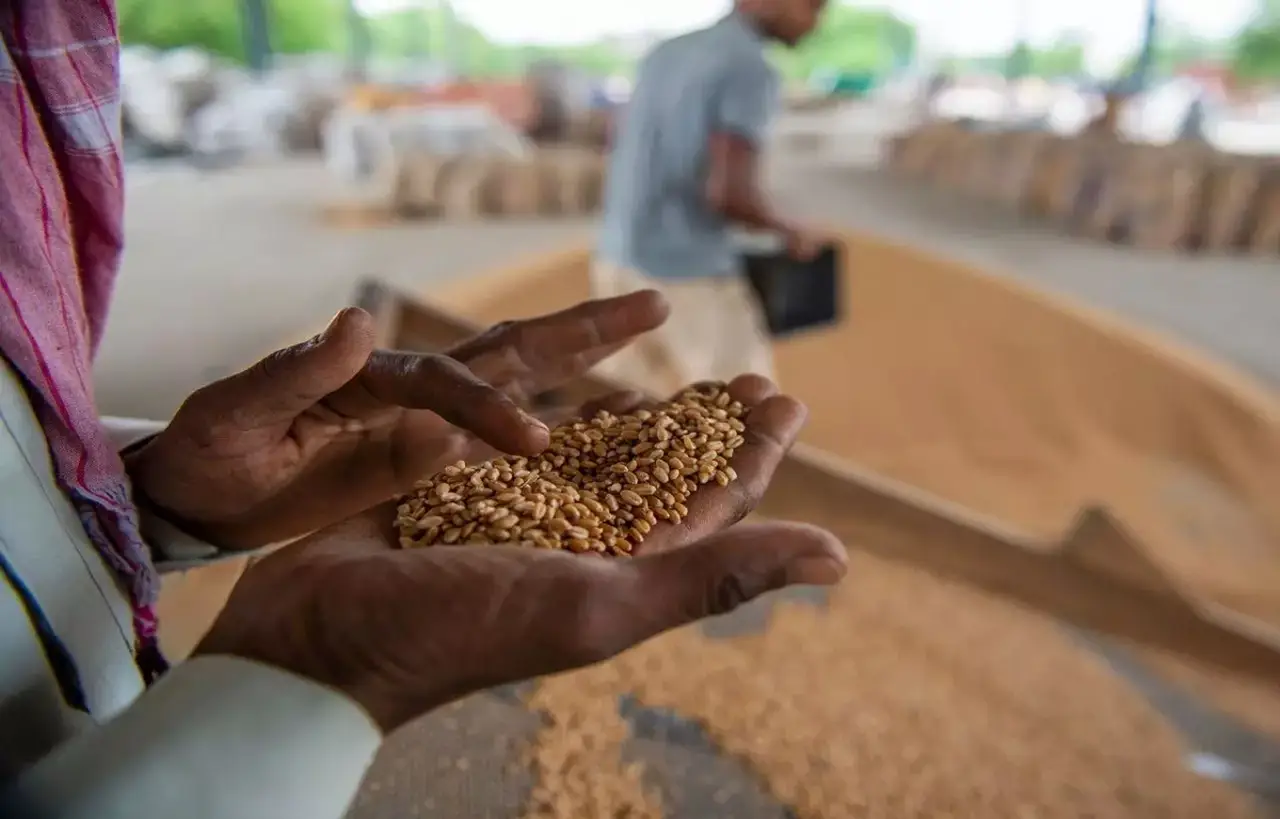The government has decided to provide free foodgrains to all 81 crore beneficiaries covered by the National Food Security Act (NFSA) for one year after discontinuing the Pradhan Mantri Garib Kalyan Anna Yojana (PMGKAY).
PMGKAY
- PMGKAY is a food security welfare scheme announced by the Government of India in March 2020, during India’s COVID-19 pandemic.
- The programme is managed by the Ministry of Consumer Affairs, Food and Public Distribution’s Department of Food and Public Distribution.
- Because of the scope of this welfare scheme, it is the world’s largest food security programme.

Targets
- To feed India’s poorest citizens by distributing grain through the Public Distribution System to all priority households (ration card holders and those identified by the Antyodaya Anna Yojana scheme).
- PMGKAY provides 5 kg of rice or wheat per person/month (depending on regional dietary preferences) and 1 kg of dal to each family with a ration card.
Success of the scheme
- Pandemic mitigation: When the pandemic hit India, this was the first step taken by the government.
- A diverse group of people benefited from the scheme, which fed nearly 80 million people.
- Migrant assistance: It has proven to be more of a safety net for migrant people who have lost their jobs and livelihoods.
- Food and nutrition security: This has also ensured nutrition security for migrant workers’ children.
Drawbacks of the scheme
- Corruption: The scheme has been affected by widespread corruption, leakages and failure to distribute grain to the intended recipients.
- Leakages: Only 55 crore of the 79.25 crore beneficiaries under the National Food Security Act (NFSA) have received their 5 kg.
- Inaccessibility: Many people were denied their fair share due to a lack of ration cards.
- Low consumption: As a result of job losses, aggregate demand fell, resulting in the lowest ever consumption expenditure by the people due to a lack of cash.
- Resale of subsidized grains: This resulted in the sale of free grains obtained in local markets for cash.
National Food Security (NFS) Act
- The National Food Security Act of 2013 aims to provide subsidized food grains to roughly two-thirds of India’s 1.2 billion people.
- It became law on September 12, 2013, retroactive to July 5, 2013.
- It converts into legal entitlements for the Government of India’s existing food security programs.
- The Midday Meal Scheme, Integrated Child Development Services (ICDS), and the Public Distribution System are all part of it (PDS).
- Furthermore, the NFSA 2013 recognizes maternity benefits.
- The Midday Meal Scheme and the ICDS are both universal, whereas the PDS will reach approximately two-thirds of the population (75% in rural areas and 50% in urban areas).
- Daily free cereals are available to pregnant women, lactating mothers, and certain categories of children.
Key provisions
- The NFSA gives people who live in “eligible households” the legal right to receive subsidized foodgrains.
- Under the Targeted Public Distribution System, rice costs Rs 3/kg, wheat costs Rs 2/kg, and coarse grain costs Rs 1/kg (TPDS).
- These are known as central issue prices (CIPs).
Source: https://kj1bcdn.b-cdn.net/media/82848/grains-8uy.jpg?format=webp&width=1280
